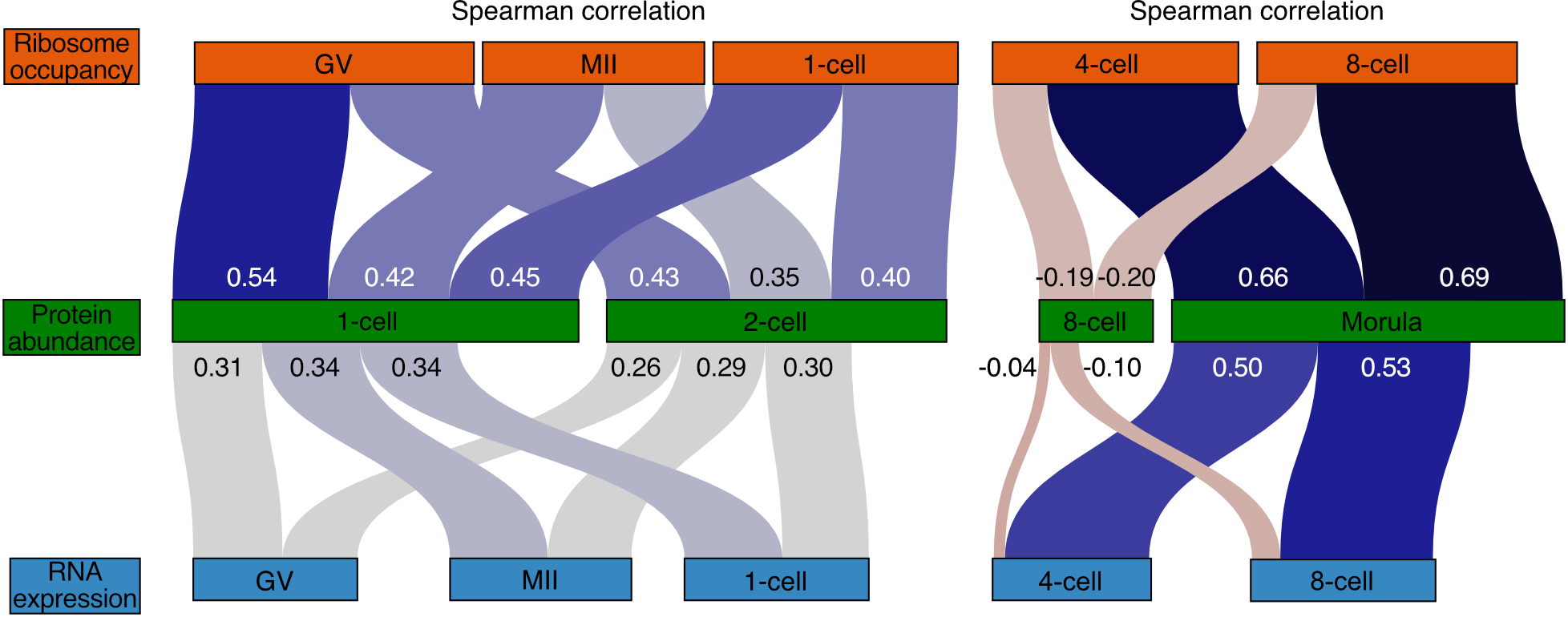We are thrilled to share our latest preprint describing our new ribosome profiling approach: Ribo-ITP. This work is the culmination of six years of development by many talented scientists. See our Twitter feed for some highlights.
Technological limitations precluded transcriptome-wide analyses of translation at single cell resolution. To solve this challenge, we developed a novel microfluidic isotachophoresis approach, named RIBOsome profiling via IsoTachoPhoresis (Ribo-ITP), and characterized translation in single oocytes and embryos during early mouse development. We identified differential translation efficiency as a key regulatory mechanism of genes involved in centrosome organization and N6-methyladenosine modification of RNAs. Our high coverage measurements enabled the first analysis of allele-specific ribosome engagement in early development and led to the discovery of stage-specific differential engagement of zygotic RNAs with ribosomes. Finally, by integrating our measurements with proteomics data, we discovered that ribosome occupancy in germinal vesicle stage oocytes is the predominant determinant of protein abundance in the zygote. Taken together, these findings resolve the long-standing paradox of low correlation between RNA expression and protein abundance in early embryonic development. The novel Ribo-ITP approach will enable numerous applications by providing high coverage and high resolution ribosome occupancy measurements from ultra-low input samples including single cells.

